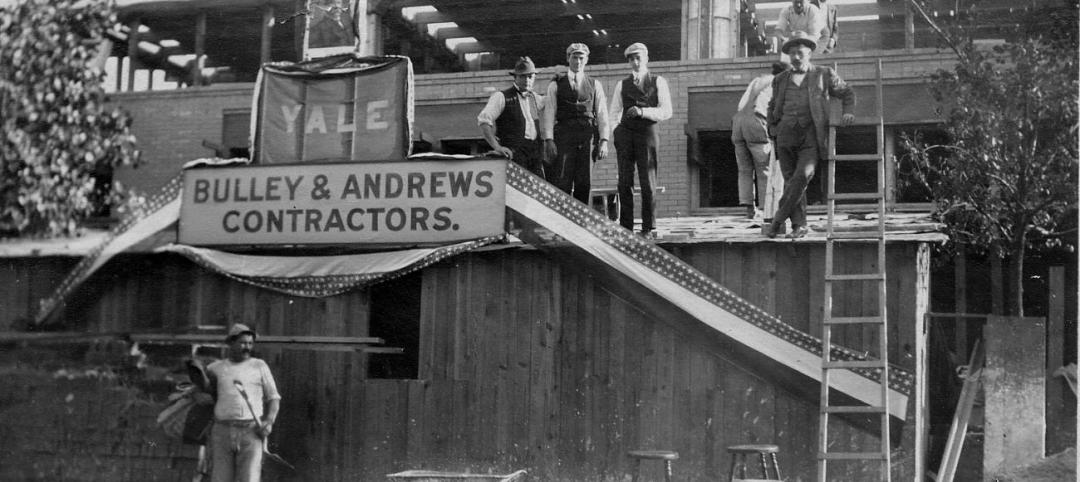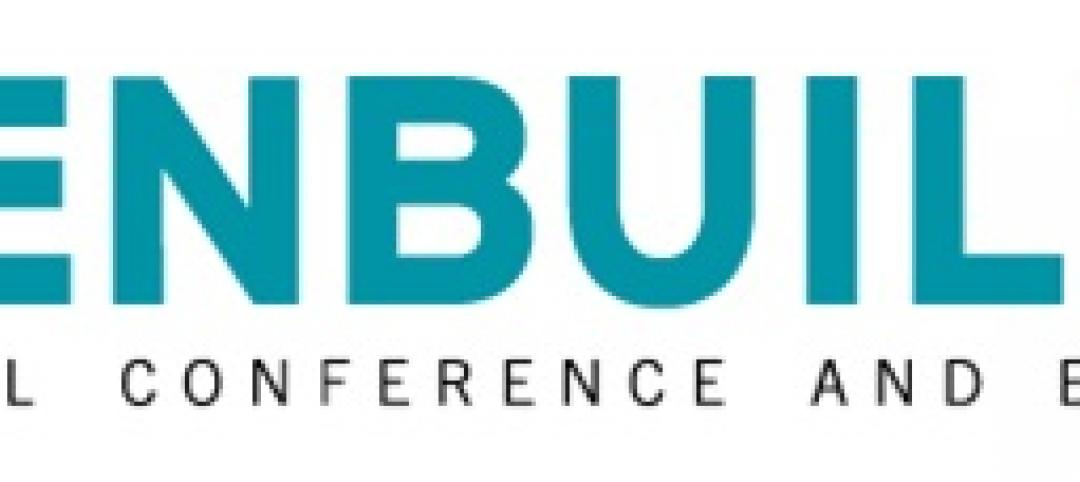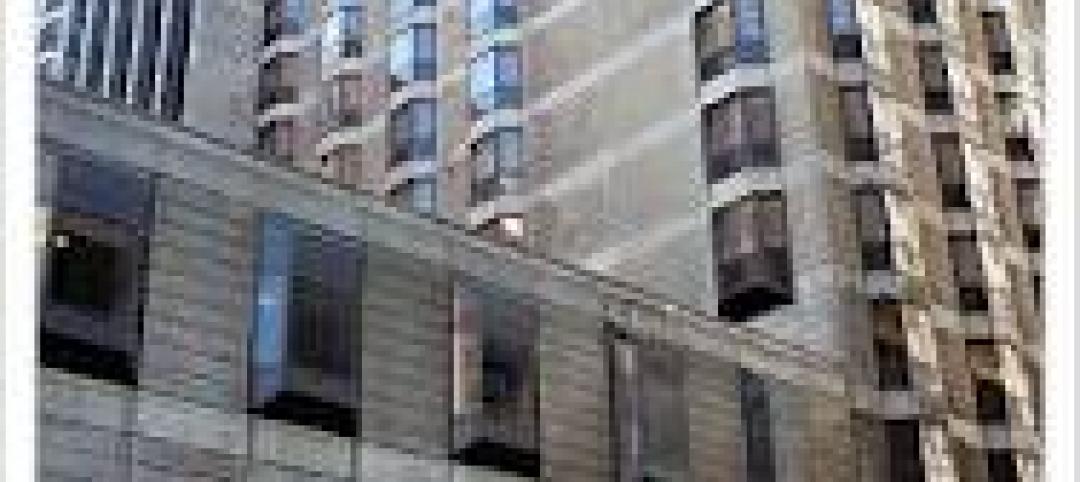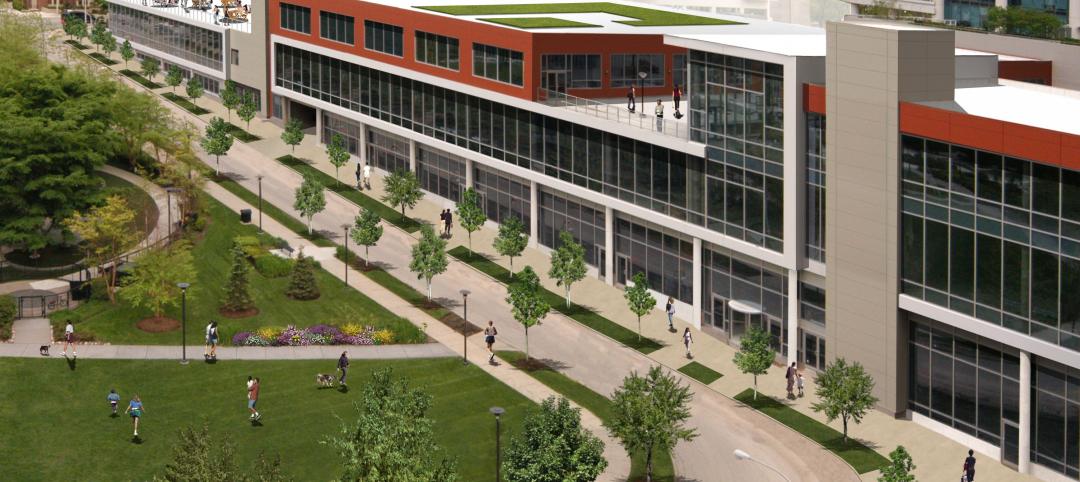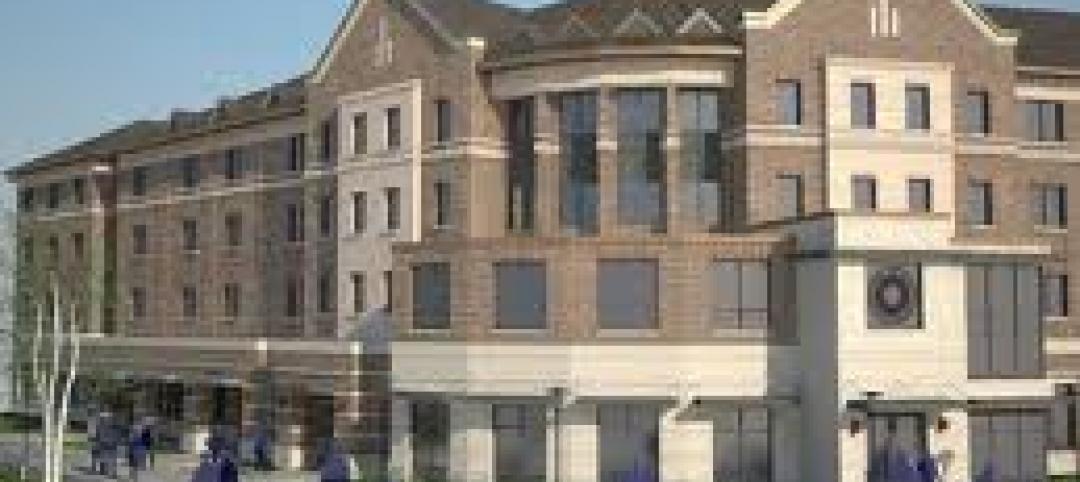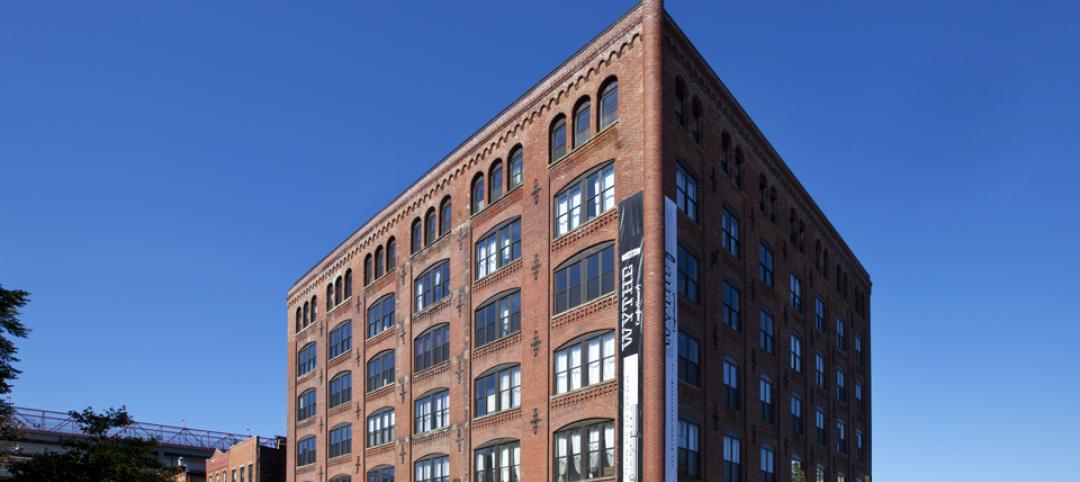Johns Hopkins Hospital operates a dense, urban medical campus in Baltimore with an outsize global reputation. Nestled amid the pioneering clinical and research facilities is the Nelson-Harvey Building, a 1970s-era modernist structure with narrow ribbon windows and long expanses of brick colored to match the nearby Halstead Building and the 1880s Billings Building, a campus landmark with its classic dome.
After opening a major new facility next door, the Zayed Bloomberg complex, the hospital began renovating existing facilities on its East Baltimore campus. The nine-story Nelson-Harvey was a candidate for an interior renovation.
After decades of wear, the hand-laid brick envelope of the Johns Hopkins nine-story Nelson/Harvey inpatient facility began failing. The architectural firms Wilmot Sanz and Ayers Saint Gross needed a solution that met two criteria: one, that is was lightweight enough to prevent any need for additional superstructure or foundation costs; and two, that the facility would be able to stay operational during the exterior renovation.
“Late in the game, during design development, the client determined that we should also address envelope issues,” said Dan McKelvey, an associate principal and building envelope expert with Ayers Saint Gross, describing the existing, hand laid brick façades with a concrete masonry unit (CMU) backup on structural steel. “There were problems including cracking and deflecting brick, and the window system was outdated. The building had no insulation in the wall system, either.”
Factory-applied foam insulation
SLENDERWALL® met the requirements. Its 28 lbs. per square foot specification and unique composite construction allowed for the re-cladding to take place without the removal of the old fascia. The 158 SLENDERWALL panels (27,164 sf) were designed with a factory-applied Endicott brick facing, maintaining continuity with the campus and the original 1970’s exterior.
Johns Hopkins also chose to include factory-applied closed-cell foam insulation and the proprietary H2Out advanced sealant rain screen system with leak detection. The addition of these options provided not only savings in time and on-site trades, but insurance against future air and water infiltrations, as well as continuous insulation adding significantly to the enclosure’s thermal performance and excellent acoustical STC ratings.
The project is being certified under Baltimore City’s Green Stars program, at a level equivalent to LEED Silver. This is the first healthcare project to seek certification under this program.
In March 2013, SMC began delivery to the contractor, Whiting-Turner. Completion of the cladding portion of the project concluded in June. The short schedule showcased the benefits of SLENDERWALL in reduced times and costs for production, shipping and installation, as well as decreasing the need for some on-site trades.
SLENDERWALL architectural precast concrete panel system uses proven technologies to connect a thin layer of fiber-reinforced architectural precast concrete with an interior steel-stud frame ready for drywall application to create a true composite exterior/interior wall. The panels are also available with optional factory-applied continuous closed-cell foam insulation and windows, offering savings in time and on-site labor.
Choosing these along with the proprietary H2Out advanced sealant system, may qualify a project for a no-moisture intrusion guarantee, giving a true one-call responsibility for the building envelope.
For more information:
Easi-Set Worldwide
1-800-547-4045
Fax 1-540-439-2541
info@easiset.com
www.SlenderWall.com
Related Stories
| Oct 12, 2011
Bulley & Andrews celebrates 120 years of construction
The family-owned and operated general contractor attributes this significant milestone to the strong foundation built decades ago on honesty, integrity, and service in construction.
| Oct 6, 2011
GREENBUILD 2011: Growing green building market supports 661,000 green jobs in the U.S.
Green jobs are already an important part of the construction labor workforce, and signs are that they will become industry standard.
| Oct 5, 2011
GREENBUILD 2011: Brick offers growing options for sustainable building design
Brick exteriors, interiors and landscaping options can increase sustainability that also helps earn LEED certification.
| Oct 4, 2011
GREENBUILD 2011
Click here for the latest news and products from Greenbuild 2011, Oct. 4-7, in Toronto.
| Oct 4, 2011
GREENBUILD 2011: Methods, impacts, and opportunities in the concrete building life cycle
Researchers at the Massachusetts Institute of Technology’s (MIT) Concrete Sustainability Hub conducted a life-cycle assessment (LCA) study to evaluate and improve the environmental impact and study how the “dual use” aspect of concrete.
| Oct 3, 2011
Magellan Development Group opens Village Market in Chicago’s Lakeshore East neighborhood
Magellan Development Group and Hanwha Engineering & Construction are joint-venture development partners on the project. The Village Market was designed for Silver LEED certification by Loewenberg Architects and built by McHugh Construction.
| Sep 29, 2011
Busch Engineering, Science and Technology Residence Hall opens to Rutgers students
With a total development cost of $57 million, B.E.S.T. is the first on-campus residence hall constructed by Rutgers since 1994.
| Aug 31, 2011
Wythe Confectionary renovation in Brooklyn completed
Renovation retains architectural heritage while reflecting a modern urban lifestyle.


